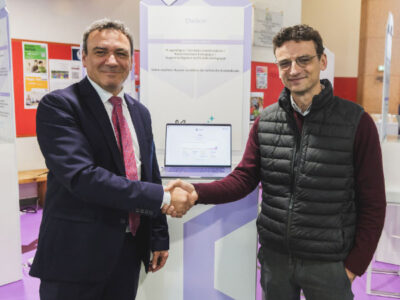The European Society For Medical Oncology has formally weighed in on a question that U.S. medical groups have been chipping away at as well: How can we guarantee safe and effective use of artificial intelligence in oncology?
HHS has issued its AI strategy—“the first step” in making a “whole-of-department transformation” towards the use of artificial intelligence in public health, health care delivery, biomedical research, human services, and agency operations.
Medicare will soon launch a pilot program that will test the use of AI to automate the prior authorization process—a tool that will recommend whether to approve or deny coverage for a patient in the program.
Imaging assessments are a requirement for most oncology trial endpoints. Yet, many cancer centers are still trying to support research trials with clinical care tools and ad hoc processes that are not fit-for-purpose and don’t meet the needs of sponsors or trial staff.
Jihad Obeid was appointed as assistant vice president for research for AI Strategy & Research Intelligence at the Medical University of South Carolina.
Xavier Apolinarski (left), vice president of innovation at Université Paris-Saclay, and Eric Durand (right), chief research and technology officer at Owkin at the signing of the deal between Université Paris-Saclay and Owkin.Université Paris-Saclay and Owkin announce the signing of a memorandum of understanding to explore the potential of K Pro Free—Owkin’s AI co-pilot for biology—for use by Université Paris-Saclay.
Onboard AI and Cedars-Sinai will collaborate to deploy an automated, AI-native governance platform that health systems can use to streamline and strengthen the evaluation, approval, and monitoring of AI solutions.
Microsoft and Qure.ai announced a collaboration that will streamline deployment of Qure.ai solutions to hospitals and health systems across the U.S.
“Our goal was very clear from the beginning, which was to develop a user-friendly simple chat-like interface that would provide specific high-quality answers to questions that our members would bring, utilizing only our content,” said Clifford A. Hudis, CEO of the American Society of Clinical Oncology and executive vice chair of the Conquer Cancer Foundation.
Tempus AI was selected by the Advanced Research Projects Agency for Health to provide testing and contract research organization services in support of the agency’s Advanced Analysis for Precision Cancer Therapy program.










